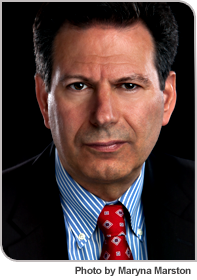 |
| Dr. Mathias Döpfner |
Döpfner's Axel Springer publishes more than 200 newspapers and magazines including German papers Die Welt and Bild. It also has a significant online presence and television and radio interests. Schmidt, in his column, had referred to the Google's advertising relationship with Axel Springer. He described how the relationship had been challenging at times but how now they had "walked down the aisle" and signed a multi-year deal.
 |
| Eric Schmidt |
Döpfner, however, referring to the 'deal' said that his company had little choice but to engage with Google as "we know no search engine alternative to increase our online reach". Döpfner said the resulting agreement between the two parties was not a compromise but instead the European Commission had "sanctioned the introduction of a business model, which in less honourable circles is called extortion".
Döpfner claimed that large technology companies like Google were far more powerful than people realised. Döpfner said that he was concerned about the role Google plays online. Döpfner said: "Google founder Larry Page dreams of a place with no privacy laws and without democratic accountability." Döpfner questioned "Is Google planning to operate in a legal vacuum, without the hassle of anti-trust and privacy? A kind of superstate?" Döpfner warned Google that in the history of economics monopolies never survived long.
 |
| Mark Zuckerberg |
Döpfner was also critical of Mark Zuckerberg with regard to how Facebook stored data and protected users' privacy. Zuckerberg has brushed aside the question of privacy by saying that 'those who have nothing to hide, have nothing to fear.' Döpfner called this a mindset that was fostered in totalitarian regimes. "Such a sentence could also be said by the head of the Stasi or other intelligence service or a dictatorship," he added.










